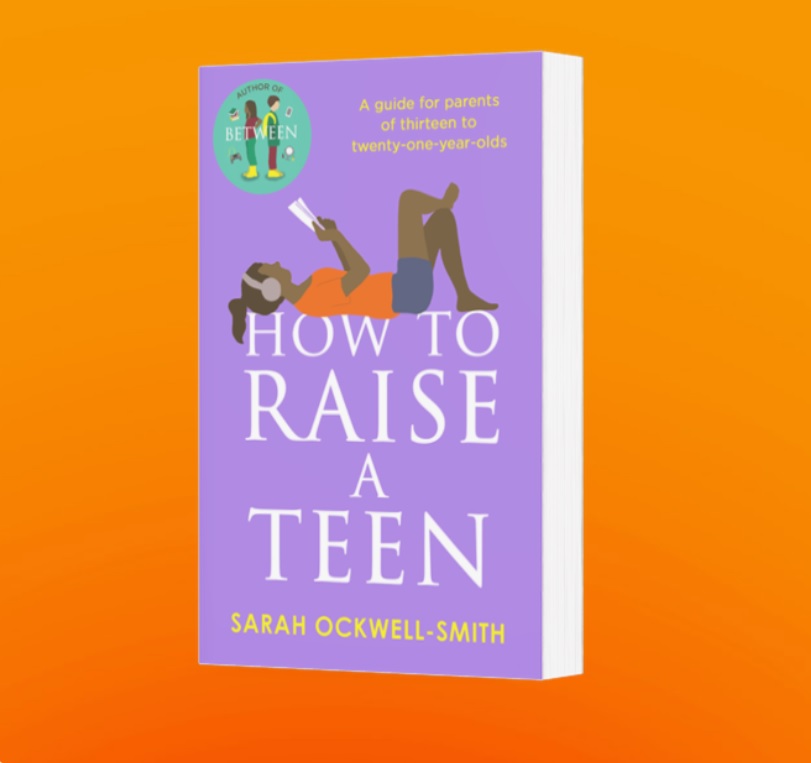
“It’s their hormones!”
If you raise a concern about your young person in a group of other parents, I can guarantee that within a minute talk will turn to hormones. If your young person is male, any difficulties you have will be blamed on the fact that their body is “swimming in testosterone”; if they are female, then their behaviour will be put down to “oodles of oestrogen”. Apparently, testosterone makes boys aggressive, rude and ‘boisterous’, whereas oestrogen makes girls sulky, erratic and rude, especially when it’s ‘the time of the month’.
What if I told you that this isn’t true?
In fact, hormones have little to do with your young person’s behaviour and constantly blaming it on this does them a great disservice. Why? Because dismissing behaviour as being caused by hormones prevents parents and carers from finding – and, most importantly, working with – any underlying problems. Constant talk of hormones also tries to neatly distinguish between ‘boy’ and ‘girl’ behaviour, with countless sources offering highly gender-stereotyped advice.
The truth is, regardless of what sex your young person is, what they need from you is exactly the same: support, attachment, understanding and great role modelling.
Does this mean hormones have no impact at all?
No. They do – just nowhere near as much as most people think. Similarly, the idea of a ‘surge of hormones’ during adolescence is misguided. Hormone levels start to change significantly at the beginning of puberty, usually between the ages of nine and eleven. So if they were really the issue, we would see an impact on behaviour far before the teen years.
There are some links between certain hormones and behaviour in adolescence, however – predominantly risk-taking behaviour. Higher levels of testosterone have been linked to an increase in this, not just in boys, but in girls, too. Interestingly, higher levels of oestradiol (a form of oestrogen) are linked with decreased risk-taking behaviours. While hormones do clearly have an impact on behaviour during the teen years, when we add brain development into the picture, too, we start to understand a lot more. You see, your young person’s brain, with a small influence from hormones, is responsible for almost all the behaviours you find challenging. And understanding the hormone–brain interplay is like flicking on a lightbulb for parents and young people alike, identifying the root causes of almost everything that both parties struggle to cope with.
Let’s take a look at some of the ways in which the young person’s brain influences their behaviour.
Common complaints of parents and carers of young people
When I run workshops for parents and carers of young people, I always start by asking them to list some of their common frustrations and concerns about their young people’s difficult behaviour. The following always appear – perhaps you can relate to some of them?
- Disorganisation
- Impulsivity
- Erratic emotions
- Lack of consideration for others
- Rudeness and backchat
- Not thinking about the consequences of their actions
- Being prone to procrastination
- Poor time management
- Inability to prioritise
- Irrational behaviour
- Short-term thinking (too focused on the moment, not the future)
- Overuse of their phones, gaming consoles and other screens
If you think back to your own teen years, I’d wager that you could probably tick quite a few of these behaviours. I know I certainly could and remember many of them appearing in school reports and discussions at my school parents’ evenings.
The behaviours in this list are almost universal during adolescence, and while your young person may not exhibit all of them all the time, it’s highly likely that you’ll have come across all of them to some extent by the time your young person turns twenty-one.
Executive functions
Executive functions, or EFs, is an umbrella term used to describe a range of cognitive – or mental – processes that control skills relating to decision making, completing tasks and emotion regulation. EFs enable us to study, work and engage with others; they are like the internal drivers of our behaviour that control our reactions to situations. EFs start to develop in early childhood. However, they do not fully mature until adulthood, with proficiency obtained in the mid- to late twenties. EFs mostly sit in the frontal lobe, the last area of the brain to complete myelination. (Myelin is a fatty sheath which surrounds a long, cable-like section of neurons – nerve cells – known as axons, enabling electrical signals to be transmitted as quickly as possible around the brain; myelination is the process of covering these axons with myelin.) While myelination mostly takes place during the end of pregnancy and the early years of life, the process is not complete until a young person enters their twenties. Incomplete myelination during adolescence therefore means we can expect the functions of the frontal lobe to be immature.
The main executive functions are:
- Flexible thinking – the ability to be able to adapt to different situations, revising planned actions and rethinking approaches; for instance, coming up with a new solution to a problem when the previous one didn’t work out as expected.
- Emotional control – the ability to recognise and regulate your own feelings so that you can complete activities; for instance, recovering from disappointment at not being able to do something and remaining calm afterwards.
- Impulse control – the ability to think about how to behave, considering potential consequences of behaviour and preventing yourself from behaving in a socially inappropriate way; for instance, not shouting out in a classroom or workplace.
- Self-monitoring – the ability to evaluate your own behaviour and actions, including your own strengths and weaknesses, considering how you impact others and using this knowledge to improve yourself; for instance, calmly receiving feedback in a work meeting or from a teacher and acting on constructive criticism.
- Planning and prioritisation of time – the ability to organise your time, understanding the urgency of a task and the time available to you; for instance, pencilling in one hour in the evening to complete your homework or work report, before playing on your phone.
- Organising – the ability to keep track of important information, utilising a helpful structure; for instance, keeping a list of groceries that have run out to take shopping with you.
- Working memory – the ability to utilise stored information in your mind to help you to complete an activity; for instance, using a mind map or mnemonic to help you revise for a test or an exam.
- Task initiation – the ability to get started on a task without procrastinating or becoming overwhelmed, combined with the ability to work hard until the task is completed; for instance, getting started on housework, without delay, and continuing until the room is tidy and clean.
The sad reality, is that if you were to eavesdrop on any conversation about young people, I can almost guarantee that you would hear an adult complaining about their EF abilities, whether that’s procrastination, emotional outbursts, inflexibility, stubborn behaviour, a lack of introspection or total disorganisation.
Undoubtedly, it is exhausting raising young people who have immature EF skills, but can you imagine how difficult it is to be the young person? Of course, you don’t have to imagine too hard because you’ve already been there. Maybe you were frequently shouted at for never tidying your room? Maybe you got into trouble for always forgetting to do your chores or hand in your homework on time? Perhaps you remember getting angry and saying things you didn’t mean in the heat of the moment? Perhaps you remember the adults in your life telling you that you needed to change and ‘grow up’? Maybe you internalised these attacks on your character and grew to believe that you were ‘lazy’ or ‘useless’ or maybe, like me, that you were ‘stroppy’. The thing is, you never were. You were simply being a young person, with a young person’s brain, just like the young person in your life today. It wasn’t your fault. And it isn’t theirs. It’s neuroscience.
In a world that tries so hard to change how young people behave, one of the most powerful things a parent or carer can do is to accept them as they are. Young people cannot change how their brains work today; they cannot magically develop mature, adult-level thinking skills, no matter how much we attempt to reward or punish them or subject them to lectures and consequences. If, instead of focusing our efforts on trying to change them, we worked with them and helped them to understand their marvellous brains, I believe everything would be very different, especially for those young people who are neurodiverse.
So much of what we describe as ‘attitude’, ‘rudeness’, ‘disrespect’ and ‘laziness’ is normal for young people. Many of their most frustrating behaviours don’t need to be disciplined out of them, instead, they need our support,guidance and patience. Yes, this is hard for us, but in the end, understanding and nurturance are key to caring for our young people, both now and in the future.
The best way we can help our young people’s brains to finish developing traits relating to confidence, calmness, empathy and consideration for others, is to embody these traits ourselves in our day-to-day dealings with them.
This is a short excerpt from my new book ‘How to Raise a Teen: A guide for parents and carers of 13- 21 year olds’. If you’d like to learn more about your teenager’s magical brain and how to support them, while keeping a calm and happy home, you can order a copy HERE.

f you liked this post, you may also like THIS ONE about Demetrescence – the motherhood transition of raising older children.
Sarah
p.s: sign up to my newsletter all about raising tweens and teens for free HERE.